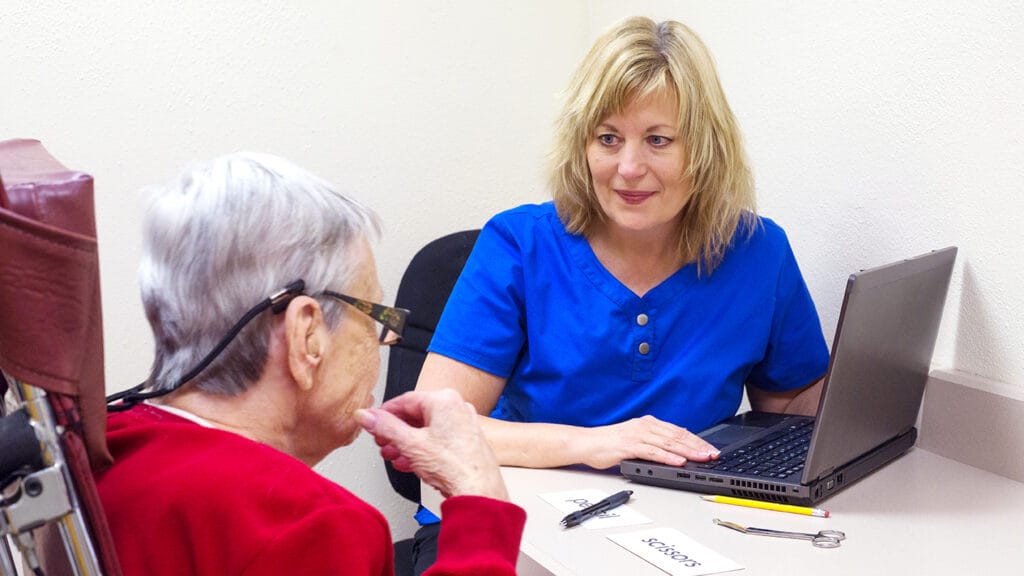
The development of an annual national survey of the dementia care workforce, including assisted living workers, is being launched thanks to a five-year, $81 million cooperative agreement with the National Institute on Aging.
The University of California San Francisco and the University of Michigan are leading the National Dementia Workforce Study, which includes multiple universities and nonprofit organizations. Starting in 2024, the NDWS aims to survey thousands of personal care and home health aides, nursing assistants, nurses of all licensing and practice levels, physicians, nurse practitioners, physician assistants and clinical staff of senior living communities and other places where people with dementia live.
Among workers who will be targeted by the survey are assisted living staff, focusing on licensed nurses, social workers, activity staff and direct-care staff. Home care and nursing home licensed nurses and direct care staff also are a focus, as are community clinicians in primary care, geriatrics, neurology and psychiatry specialties.
Questionnaires for each professional group will focus on worker characteristics, organizational practices, working conditions, worker outcomes and process, and quality of care.
“Direct care workers who come to patients’ homes, and those who work on the front lines of long-term care, are often overlooked,” Joanne Spetz, PhD, head of the UCSF long-term care research team, said in a statement. “But the high turnover in these low-wage jobs, which often don’t require advanced training, is a major factor in the current crisis in dementia care.”
The goal of the study is to improve understanding of the healthcare workforce that cares for people with dementia. Surveys and other tools will be used to produce data for clinicians, researchers, policymakers and others. Experts at state and federal agencies that regulate or pay for dementia care also will have access to the findings, potentially leading to new models to incentivize industry and nonprofit organizations to better coordinate care, according to the researchers.
“This is about creating a large-scale infrastructure and data source for others to use, as they seek to understand current variations and opportunities,” Donovan Maust, MD, a healthcare data researcher at U-M’s academic medical center and head of the NDWS team, said in a statement.
Maust said that a sense of urgency exists to gather these type of data and harness it in a way to help the 6 million Americans already living with dementia as well as the millions more who will receive diagnoses in the future as new tests and treatments for early-stage dementia become available.
“This investment will fill the gaps in knowledge that stand in the way of better care and [will] make it possible to use resources more wisely,” he said, adding that the data could reveal important differences between states as far as practices, care coordination and outcomes.
“Finding, training and keeping workers is a key challenge for all parts of the healthcare industry right now, and we hope to make it possible to find and address causes of burnout and quitting, including through federal workforce-related funding,” Maust said.
Researchers welcome feedback on the designated groups of workers and questionnaire suggestions. People living with dementia and their family caregivers also will provide input into the survey.
In addition to U-M, UCSF and the Alzheimer’s Association, other NDWS partners include the University of North Carolina at Chapel Hill, the University of Pennsylvania, Brown University, Yale University and Mathematica. Consultants on the project are AMDA–The Society for Post-Acute and Long-Term Care Medicine, and PHI, a nonprofit direct care industry organization.


